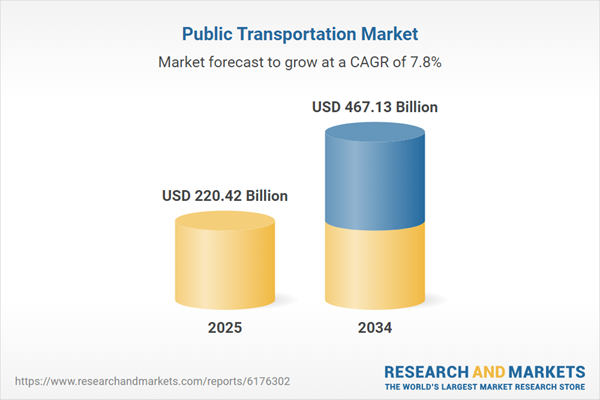Report on South Korea’s Plastic Waste Management and Alignment with Sustainable Development Goals
1. Executive Summary
This report examines South Korea’s proposed policy change to reclassify “thermal recycling”—the incineration of waste for energy—and its significant implications for the nation’s progress toward the Sustainable Development Goals (SDGs). The Ministry of Climate, Energy and Environment is reviewing the exclusion of this practice from official recycling statistics to align with international standards. This move is critical for accurately measuring performance related to SDG 12 (Responsible Consumption and Production) and SDG 11 (Sustainable Cities and Communities), as the current methodology inflates recycling rates and masks the low level of material circularity.
2. Analysis of Current Waste Management and Statistical Discrepancies
South Korea’s official recycling statistics have included thermal recycling since 1999, a practice not considered recycling by most developed economies, which classify it as “energy recovery.” This discrepancy has led to a significant overstatement of the country’s circular economy performance.
- Inflated Recycling Rates: According to 2023 data, the national household waste recycling rate was 58.7%. However, 12.5 percentage points of this figure came from thermal recycling.
- Plastic Waste Data: Approximately 29.5% of all plastic waste reported as “recycled” is incinerated for energy. Removing this would reduce the plastic recycling rate by nearly one-third.
- High Waste Generation: In 2022, South Korea generated 103.9 kilograms of plastic waste per person, more than double the OECD average, compounding the challenge of effective waste management.
- Low Material Recycling: Independent analysis, including a 2023 Greenpeace report, indicates that the true material recycling rate for household plastic waste may be as low as 16.4%, with 32.6% being incinerated.
3. Implications for Sustainable Development Goals (SDGs)
The misclassification of waste incineration directly impacts South Korea’s ability to monitor and achieve several key SDGs. An accurate definition of recycling is fundamental to sustainable development policy.
- SDG 12 (Responsible Consumption and Production): The current statistical approach undermines Target 12.5, which aims to substantially reduce waste generation through prevention, reduction, recycling, and reuse. By counting incineration as recycling, the true scale of waste generation and the low rate of material circularity are obscured.
- SDG 11 (Sustainable Cities and Communities): Target 11.6 calls for reducing the adverse per capita environmental impact of cities, with a focus on municipal waste management. Accurate data is essential for creating effective urban waste strategies. The policy change will provide a clearer picture of waste management challenges in cities.
- SDG 13 (Climate Action): While waste-to-energy can replace fossil fuels, the incineration of plastics still releases significant greenhouse gases. A policy focus that prioritizes true material recycling over incineration better supports climate goals by reducing demand for virgin plastic production, a highly energy-intensive process.
- SDG 14 (Life Below Water): Ineffective recycling systems contribute to plastic pollution in marine ecosystems. Improving the integrity of the recycling system is crucial for preventing plastic leakage and protecting marine biodiversity.
4. Proposed Policy Reform and Implementation Pathway
The Ministry of Climate, Energy and Environment has initiated a formal review to align its definition of recycling with international norms. The goal is to restore credibility to national statistics and foster a genuine circular economy.
- Stakeholder Consultation: The ministry plans to collect input from industry stakeholders and environmental experts before drafting legislative changes.
- Legal and Regulatory Adjustments: The reform will require legal revisions and adjustments to industry subsidies and environmental performance metrics, which currently incentivize thermal recycling.
- Implementation Timeline: Due to the complexity of these adjustments, full implementation of the new definition is anticipated around 2028.
5. Conclusion
The reclassification of thermal recycling is an essential step for South Korea to enhance the credibility of its environmental data and align its national strategy with global sustainability commitments. This policy reform will provide a more accurate baseline for measuring progress towards the Sustainable Development Goals, particularly those concerning responsible production, sustainable cities, and climate action. By adopting a definition that meets international standards, South Korea can better direct public and private efforts toward achieving a true circular economy.
SDGs Addressed or Connected
The article on South Korea’s plastic waste management connects to several Sustainable Development Goals (SDGs):
- SDG 11: Sustainable Cities and Communities – The article focuses on the management of household waste, a critical service for sustainable urban environments. It discusses the national recycling rate for household waste (58.7%) and the challenges cities face in managing the high volume of plastic waste generated by their populations.
- SDG 12: Responsible Consumption and Production – This is the most central SDG to the article. It directly addresses patterns of consumption (high per capita plastic waste generation at 103.9 kg) and production/waste management (recycling, thermal recycling, and landfilling). The core issue of redefining “recycling” to promote a genuine “circular economy” is a key theme of SDG 12.
- SDG 13: Climate Action – The practice of “thermal recycling” is mentioned as a way for factories to “replace fossil fuels by burning discarded plastic and tires.” While this is framed as energy recovery, the incineration of plastics is a source of greenhouse gas emissions. Changing this policy is therefore linked to national climate strategies and emissions accounting.
- SDG 17: Partnerships for the Goals – The article highlights South Korea’s effort to align its recycling definition with “international norms,” specifically mentioning the distinction made by the “European Union and US.” This move to adopt international standards for data and policy reflects a commitment to global cooperation and credible reporting for sustainable development.
Specific Targets Identified
Based on the article’s content, the following specific SDG targets can be identified:
- Target 11.6: By 2030, reduce the adverse per capita environmental impact of cities, including by paying special attention to air quality and municipal and other waste management. The article’s entire focus is on improving the management of municipal plastic waste. It details how nearly one-third of plastic waste is burned and discusses the high per capita generation rate, both of which are adverse environmental impacts of cities that the new policy aims to address more transparently.
- Target 12.4: By 2020, achieve the environmentally sound management of chemicals and all wastes throughout their life cycle, in accordance with agreed international frameworks, and significantly reduce their release to air, water and soil to minimize their adverse impacts on human health and the environment. The debate over whether to classify waste incineration as “recycling” or “energy recovery” is a debate about the environmentally sound management of waste. The article notes that burning plastic does not reuse materials and that the government is moving to align its definition with international standards to better manage waste.
- Target 12.5: By 2030, substantially reduce waste generation through prevention, reduction, recycling and reuse. The article critiques the current system by revealing that the official recycling rate is inflated. It quotes a Greenpeace report stating that only “16.4 percent of household plastic waste sorted for recycling in 2021 was turned back into new plastic.” By redefining recycling, the government aims to create policies that support true material recycling and a circular economy, which are essential for substantially reducing waste.
Indicators Mentioned or Implied
The article mentions or implies several indicators that can be used to measure progress towards the identified targets:
- Indicator 11.6.1 (modified): Proportion of municipal solid waste managed by type. The article provides explicit data points for this indicator. It states the household waste recycling rate is 58.7%, of which “46.2 percent came from material recycling, while 12.5 percent came from thermal recycling.” A separate report found that of plastic waste sorted for recycling, 32.6% was burned and 12.8% was put into landfills. These figures directly measure how municipal waste is managed.
- Indicator 12.5.1: National recycling rate. The “national recycling rate” is the central quantitative measure discussed throughout the article. It provides the official rate (58.7%), explains how it is calculated, and discusses how reclassifying thermal recycling would “cut the nation’s apparent household recycling rate by more than 10 percentage points.”
- Implied Indicator: Per capita generation of plastic waste. The article explicitly states, “In 2022, South Korea generated 103.9 kilograms of plastic waste per person, more than twice the OECD average.” This is a direct measure of consumption patterns and the scale of the waste problem, relevant to Target 12.5.
SDGs, Targets, and Indicators Summary Table
| SDGs | Targets | Indicators |
|---|---|---|
| SDG 11: Sustainable Cities and Communities | 11.6: Reduce the adverse per capita environmental impact of cities, including by paying special attention to… municipal and other waste management. | Proportion of municipal solid waste managed by type (e.g., 46.2% material recycling, 12.5% thermal recycling, 12.8% landfill). |
| SDG 12: Responsible Consumption and Production | 12.4: Achieve the environmentally sound management of… all wastes throughout their life cycle… in accordance with agreed international frameworks.
12.5: Substantially reduce waste generation through… recycling and reuse. |
National recycling rate: The official rate is 58.7%, but this is being reviewed.
Per capita generation of plastic waste: 103.9 kilograms per person in 2022. |
| SDG 13: Climate Action | 13.2: Integrate climate change measures into national policies, strategies and planning. | The article implies a connection through the policy discussion on burning plastic waste to replace fossil fuels, a practice with direct implications for national emissions. |
| SDG 17: Partnerships for the Goals | 17.16: Enhance the global partnership for sustainable development… complemented by multi-stakeholder partnerships that mobilize and share knowledge… | The government’s action to align its definition of recycling with international norms (EU, US) to restore credibility and support a circular economy. |
Source: koreaherald.com






